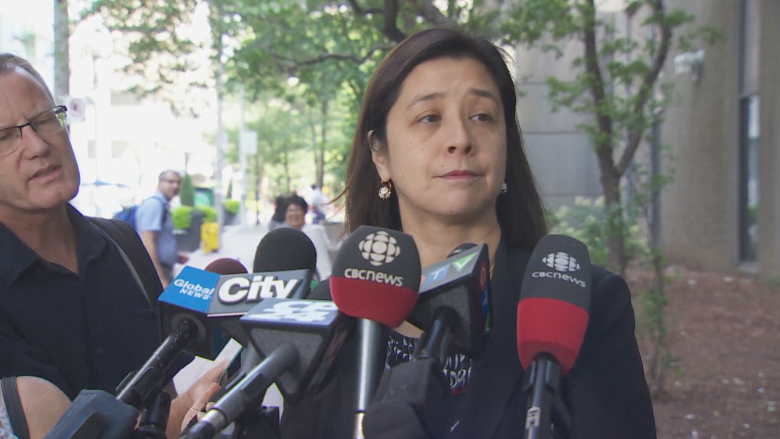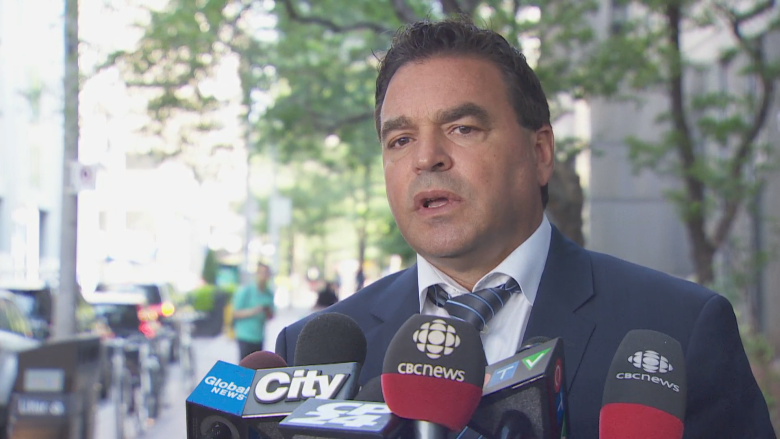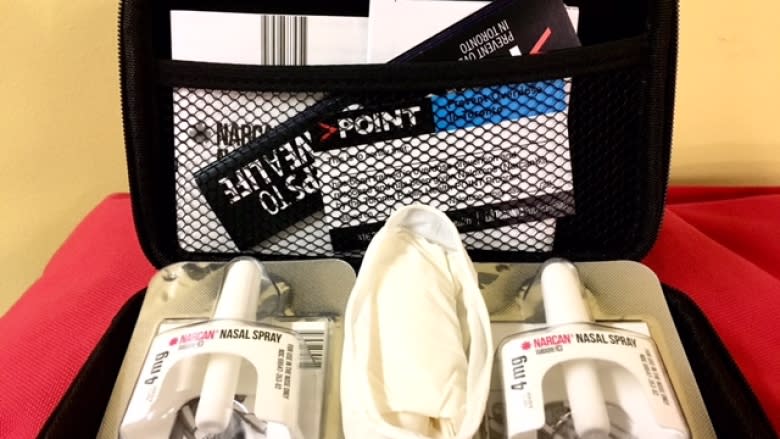New interim supervised injection site opens its doors
An interim supervised injection site in Toronto Public Health's 'The Works' building has opened its doors.
Dr. Elieen de Villa, the city's Medical Officer of Health, says this injection site is much-needed as the highest risk of death related to overdose is when drug users use alone.
"We are creating a safe, supervised environment for people to use drugs safely so that they minimize harm to themselves," she said.
She also says that Toronto Public Health is distributing the opioid antidote Naloxone to help prevent deaths related to overdoses when the site is closed.
Approved by Health Canada on Friday, the temporary site will run from 4 p.m. to 10 p.m. Monday to Saturday until a permanent supervised-consumption site under construction in the same building on the corner of Victoria Street and Dundas Street East is open.
It will serve three clients at a time, and includes disposal sites for needles and privacy screens for clients.
"There is an area for clients to rest for a few moments and to be observed safely after using those drugs," added de Villa.
The site's opening comes after pop-up injection sites were recently set up by health advocates in Moss Park, but Health Canada says that those sites offer a different service — monitoring people who have used illicit drugs for signs of an overdose, and providing rapid intervention when an overdose occurs.
"Unlike a supervised consumption site, these sites have no direct supervision while people are using illicit drugs," Health Canada told CBC Toronto in a statement.
Coun. Giorgio Mammoliti, a vocal opponent of the injection site, believes it will have a negative impact on the community, saying it could lead to "needles everywhere."
"Dundas Square isn't going to be the Dundas Square that you are seeing today," he said.
Mammoliti advocates setting up supervised injection sites in hospitals instead, but many supporters — including harm reduction advocate Nick Boyce — say dealing with the opioid crisis through hospitals and the prison system are expensive alternatives.
Toronto Public Health's most recent data on opioid fatalities indicates that 87 people died from opioid use in the first half of 2016, with 135 deaths in 2015.




